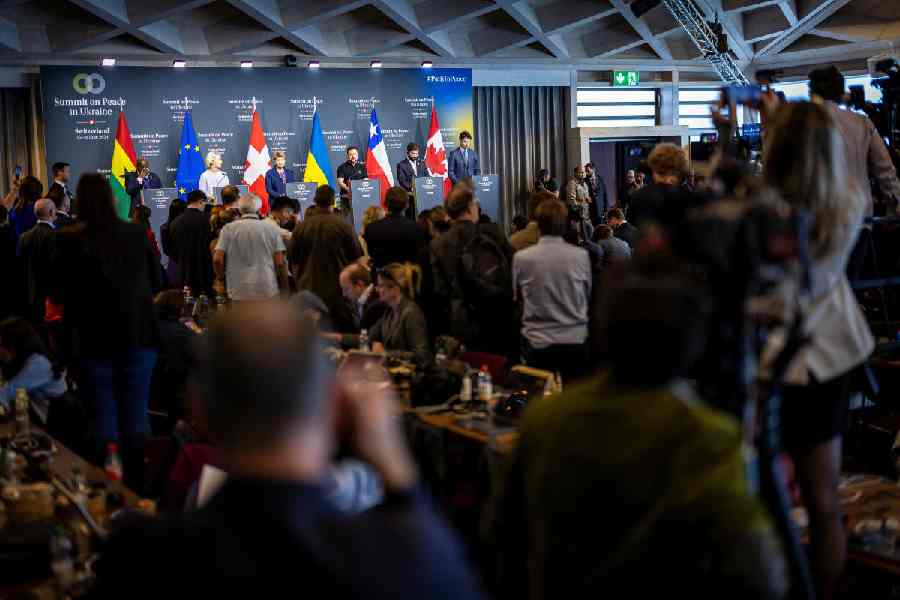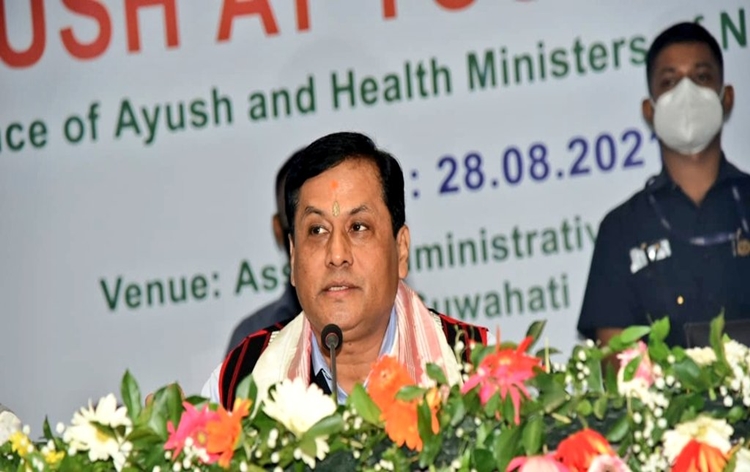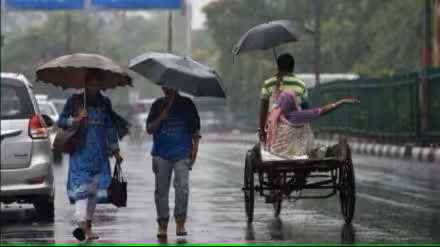At a peace summit in Switzerland attended by representatives from over 90 countries, a senior Indian diplomat emphasized India’s stance that enduring peace can only be achieved through direct and sincere engagement between Russia and Ukraine. The summit, held at the Bürgenstock resort near Lucerne, was hosted at the request of Ukrainian President Volodymyr Zelenskyy.
 Pavan Kapoor, Secretary (West) of the Ministry of External Affairs, stated that India would not endorse any joint communique or documents emerging from the summit due to its position that only solutions acceptable to both Russia and Ukraine can lead to lasting peace. The Indian delegation participated in the opening and closing plenary sessions but abstained from other activities.
Pavan Kapoor, Secretary (West) of the Ministry of External Affairs, stated that India would not endorse any joint communique or documents emerging from the summit due to its position that only solutions acceptable to both Russia and Ukraine can lead to lasting peace. The Indian delegation participated in the opening and closing plenary sessions but abstained from other activities.
Russia was notably absent from the summit, having not been invited. Ukraine and several Western nations had encouraged India’s high-level participation, but India maintained its stance to avoid appearing to support an initiative that excluded its strategic partner, Russia.
In a brief address, Kapoor reiterated India’s consistent call for dialogue and diplomacy to resolve the conflict. He affirmed India’s willingness to engage with all parties involved to contribute to genuine efforts for peace but clarified that India would not associate itself with any summit outcomes not mutually agreed upon by the conflicting parties.
Since the onset of Russia’s invasion of Ukraine in February 2022, India has avoided public criticism of Moscow and increased its purchases of discounted Russian commodities, such as oil and fertilizers, following Western sanctions. India defends this relationship, noting its reliance on Russia for nearly 60% of its military hardware and emphasizing that energy purchases are in the best interest of Indian citizens.
Prime Minister Narendra Modi has previously conveyed to Russian President Vladimir Putin that “today’s era is not of war,” underscoring India’s preference for a diplomatic resolution.
Kapoor highlighted India’s participation in the summit as part of its ongoing efforts to seek a negotiated settlement to the complex and urgent issue. He expressed India’s support for any collective initiative aimed at a peaceful resolution of the conflict.
Besides India, other countries such as Indonesia, Mexico, Saudi Arabia, South Africa, Thailand, and the United Arab Emirates also did not sign the final communique. A total of 92 countries, including major powers like the US, UK, Germany, Italy, and Japan, as well as eight international organizations, participated in the two-day summit.
The communique, supported by 80 countries, called for Ukraine’s territorial integrity to be the basis for any peace agreement and addressed issues like nuclear safety, food security, and prisoner exchanges. China chose not to attend, and Russia criticized the summit, proposing alternative peace plans instead.
Switzerland’s foreign ministry stated that the summit aimed to initiate a peace process and lay out steps towards achieving it. Hosting the summit was part of Switzerland’s efforts to facilitate discussions leading to a just and lasting peace in Ukraine.




